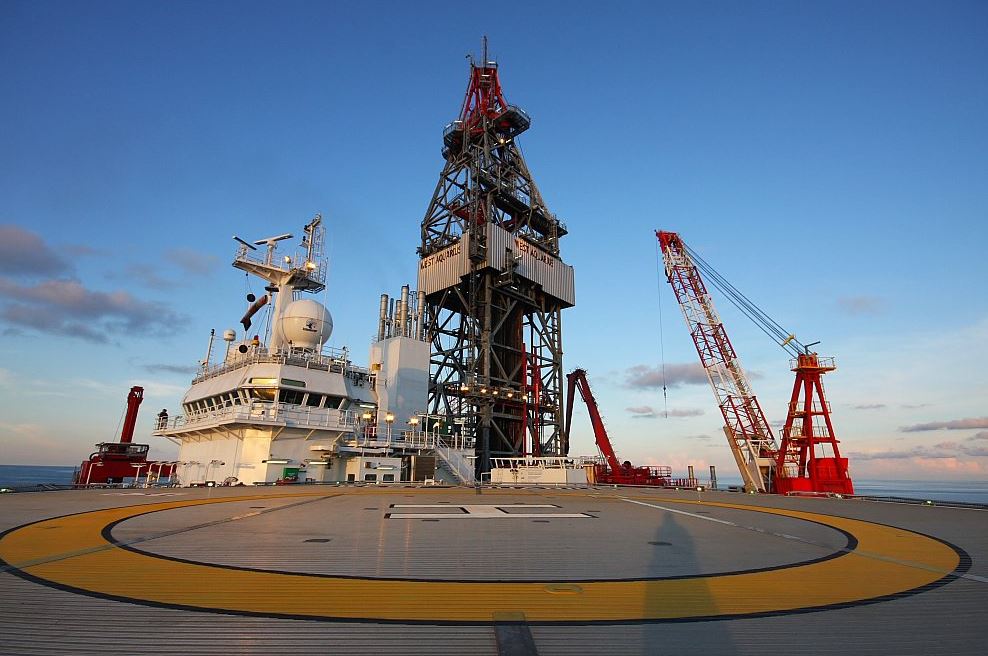Four days have passed since a spill of 136,000 litres of drilling mud was reported off Nova Scotia’s coast, and the operation remains suspended.

READ MORE: Spill of 136,000 litres of drilling mud reported off Nova Scotia coast
According to a news release from the Canada-Nova Scotia Offshore Petroleum Board on Tuesday afternoon, British Petroleum Canada has not been given the go-ahead to resume drilling at its West Aquarius Drilling Unit.
“To resume drilling, the CNSOPB must be satisfied with the responsive steps that BP has taken, and be satisfied that drilling operations can proceed safely,” Canada-Nova Scotia Offshore Petroleum Board spokesperson Stacy O’Rourke said in the release.
WATCH: Poll examines Canadians’ thoughts on feds buying Trans Mountain

The “unauthorized discharge” of synthetic-based drilling mud was reported Friday afternoon. The preliminary investigation indicated the spill was from piping that forms part of the mud system approximately 30 metres below sea level.
West Aquarius is currently located 330 kilometres off the coast of Halifax.

Get daily National news
On Friday, BP Canada confirmed there was a mud spill, stating they are taking the matter “very seriously.”
READ MORE: Assembly of Mi’kmaq Chiefs ‘extremely concerned’ with mud spill off N.S. coast
Synthetic-based mud is a heavy, dense fluid used during drilling to lubricate the drill pipe and overbalance reservoir pressure.
Dating back to 1999, the Canada-Nova Scotia Offshore Petroleum Board has recorded 16 spills of synthetic drilling mud. Thirteen of those spills were less than 150 litres. The most significant, reported in August 2004 was 354,000 litres.
The Canada-Nova Scotia Offshore Petroleum Board gave BP Canada the go-ahead to drill a well off the coast of Nova Scotia back in April.
Stacy O’Rourke stated that the Canada-Nova Scotia Offshore Petroleum Board will not be commenting further on the investigation at this time, as it is ongoing.
- Minister ‘disappointed’ in OpenAI, but why is AI regulation taking years?
- OpenAI’s handling of Tumbler Ridge shooter info opens regulation questions
- OpenAI reps summoned to Ottawa to discuss concerns following Tumbler Ridge shooting
- Blizzard slams into northeastern U.S., with intense snow and travel bans








Comments
Want to discuss? Please read our Commenting Policy first.